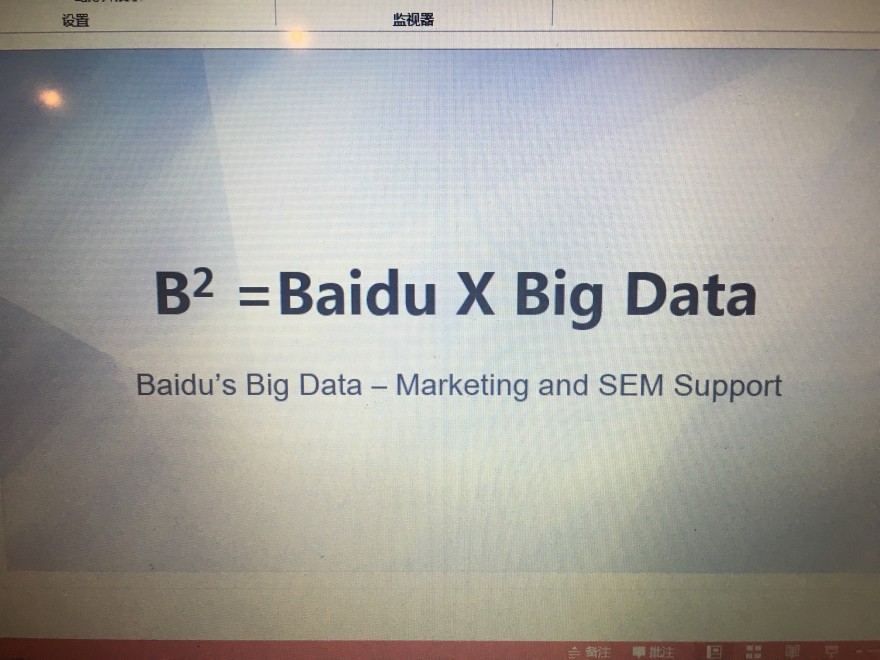How to Promote your Business in China
How does Chinese Market work? How can companies promote themselves without Facebook and Google? How do people survive under huge competition there?
China is -still- a mystery for foreigners. The country means a huge cake, but before entering the market you will need to answer to this and other questions. To make it easier to you, in 2 Open we have taken a brief look of the Chinese market and done a list of the most basic tips you should consider before landing in China.
Gone wrong? It can go much worse
When many companies started their business in China for the first time, the things they used quite a lot in local made no sense in China.
Ebay is one of the biggest e-commerce platforms around the world and a perfect example to explain the experiences many foreign companies face in China. Due to its leadership, the company assumed that its landing in China would be no much different to that experienced in other countries, so in the beginning they refused to establish a partnership with JD.com. The company soon realized there were no more choice but to cooperate with them.
What are the most common problems that foreign companies face in Chinese territory?
Foreign enterprises in China often fall into the same shortcomings we analyze below. Let´s see:
First, Always try to show their high-end enterprise images
Foreign enterprises always show their best face: high-quality services, responsible attitude, respect to the customers… and so on. But in China, price is the key and can always be the KPI which attract the customers’ sight immediately.
Second, Focus on high-end target audiences but ignore the rapid growth of China
When companies like Blueberry entered China, they set the target group to those corporate users. As the earliest and past No.1 smart phone, Blueberry had already been famous in China. But within 7 years (2006-2013), they retreated from China and closed their Chinese official website.
When Huawei set off their business, what they did was to set the target audiences as all people who want smart phone. Since the average income of Chinese people is increasing, so that more and more can afford a smart-phone. Huawei was right about its strategy.
Third, Copy the promotion strategy directly to China
Many foreign companies would prefer to make a wonderful advertisement, an amazing poster and advertise in the subway stations, supermarkets… and everywhere. But they always find out that the ROI is quite low, since they might only get 1 customer for a 100 RMB budget. Does it outweigh? We don´t think so.
In China, since the civil quality is still on a shallow level, what the customers care most is whether they are interested in, but not what is a good design. That is why when Taobao.com stepped out their first step, they even promoted on some illegal websites which had huge traffics every day.
Fourth, Think too much about customers but ignore what the customers are thinking about ICQ. The instant messaging software also failed in China!
The U.S. companies are always stricts on protecting the users’ privacy. With such a policy, users can’t find the chat record if they log in on another PC, since the software will not memorize or save these records in order to protect the privacy to the most degree.
Its counterpart in China, Ma Huateng, found out this fault which doesn’t fit the Chinese users’ requirement. In response he created QQ, which is based on the technology of ICQ and make this software become the most-used IMS in China.
Fifth, Rely too much on the Western promotion ways, companies do not want to do things directly
E-mail, Mail and SMS promotion require low budget and have huge audience quantity. Well, they do not make sense in China. For many Chinese people, it is absolutely offensive if they receive advertisement in these channels since they have watched and received too many advertisements already. Moreover, for most Chinese these all are considered private.
They don’t like to be bothered by anything they don’t even know. In China, what people prefer is face to face, no matter if it is for sales promotion or negotiation. The Chinese only trust the people in real life. That’s why when Zhou Hongyi took the responsibility of Yahoo China, he fired all employees who only did E-mail promotion but never visited the clients.

What should you do, then?
First, Pay attention to Chinese culture
Chinese culture is totally different comparing with the Western cultures. Different political systems, different History, different religious beliefs. Thus, the culture strike shows extremely seriously in China.
Your company should do its best to avoid the culture strike and assume their role. We suggest you yo have a look to Lancôme experience in China.
Second, Explore the Chinese consumer behaviour and preferences
Knowing the Chinese consumer behavior and their preferences make the difference. What are the KPIs to attract them? What they care the most? What they pay less attention to? What channels they prefer to get promotion information?
All these questions need to be taken into account when setting up the marketing strategy in China.
Third, Know the correct channels
Due to the firewall in China, many foreign websites (Google, YouTube, Facebook, Twitter, etc.) are not allowed in the China mainland. Thus, use Chinese sources.
Fourth, Speak that language
Chinese people still prefer to speak Chinese. So, when doing business with them, try Mandarin: it is always more than welcome.
There are still lots of thing we need to explore and learn about China. In search of an Ecommerce and Digital Marketing Agency?
This article has been edited by Paula Vicuña, from 2 Open.
Big Data and Precise Marketing – Tips from Baidu
Nowadays everyone is talking about big data, but what exactly is big data? How can we use it to benefit our business in China?
As we all know, Baidu is the biggest, and most popular, Chinese search engine with coverage of approximately 95% of China’s population. It receives around 6 billion search queries per day. With their countless backstage data, Baidu decided to move forward into the big data area and try to convert it into a high-value business service.
Last week 2Open attended a seminar about Baidu’s big data and precision marketing. Here are some point that were discussed during the event.

What is big data?
Big data is all about predictions, math applied to large quantities of data in order to infer probabilities. The big data will provide us with the new ability to crunch a vast collection of information, analyze it instantly, and draw conclusions from it.
Big data can be used in a variety of business field: cross marketing, precision marketing, reference location, credit investigation, quantity investigation, disease prediction and travel prediction etc.
For instance, by using Baidu’s big data, we can find out the crowdedness of certain touristic attractions and the popularity of the travel itinerary in China. With the help of this data we would be able to improve our travel plans since we would be avoiding crowded destinations.
Big data for marketing?
In the past Baidu cooperated with a motor company (to protect the advertiser’s rights we will refer to this company as Company A).
First of all, Company A wanted to launch a new A0 level car to the market, but they had no idea what the new car’s selling point was, more importantly, how to handle the pre-marketing and publication campaign. They decided to work with Baidu and used their big data service.
Secondly, Baidu identified consumer’s emotional needs by mining social data, and exploring differentiation opportunities by scanning the perception of other competitors. With all of this data they decided to use “happiness” as the communication concept/selling point of the new car.
Finally, by studying consumer’s profiles, identifying target audiences, and understanding different age groups by analysing their lifestyle and engagement occasions. The new car’s main target audience resulted to be 23-45 males, in tier3, tier4 and tier5 instead of tier1 and tier2 cities. This turned out to be the most important consumption market.
For lifestyle occasions, Baidu chose readings, videos, movies, TV series and gaming as the main five labels for determining their target audience. Company A even designed a LOL (League Of Legends, one of the most famous online games) poster ads.
For engagement occasions, there are five stages before the final purchase. Baidu defines them as; category research, comparative study, trial, finding 4S stores, and financial plan. Then they give related suggestion to company A for every stage of the marketing strategy.

Baidu named its big data & marketing decision platform “Sinan”(http://sinan.Baidu.com/). This platform mainly provides nine functions: audience definition, brand recognition, interest insight, search behaviour, demographics, geographic, media preferences, multiple data merge, and media buying suggestion. With the help of a big data platform like this any marketing strategy will be much easier for a company.
Still wondering about how to improve your business in China? Try embracing big data now! Or… get in touch with us. Here at 2Open we are passionate about every project. Our team of specialists have the expertise and knowledge that your company needs to thrive in the Chinese market. If you have any questions or require any information about our services, please do not hesitate in contacting us, we will be more than happy to assist you.
This article was edited by Andres Arroyo Olson from 2Open.



